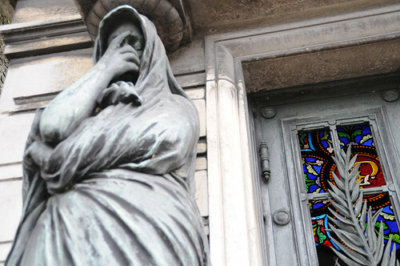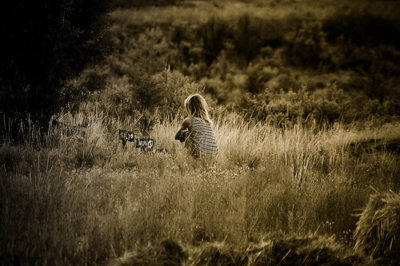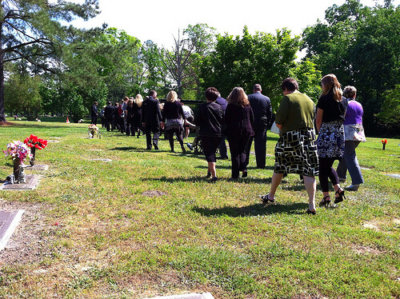Bereavement – A Close Look at The Symptoms and How To Cope

By: Andy Blackledge
Even more so than other experiences, loss is a personal process. It can’t be completely predicted, and comparing it to the experiences of others is helpful but can only act as a guideline.
Remember, you had a personal relationship with the person who passed away that was between you, and them. Processing their passing will be as unique to you.
The biggest thing to keep in mind with bereavement is to go easy on yourself and avoid judging yourself or your experience.
What makes mourning so overwhelming is that it is so multi-faceted. Any old idea you might have had that it’s just ‘feeling sad’ quickly disappears when you actually experience bereavement.
Bereavement and the Anger Tsunami
Bereavement doesn’t just bring tears – it can bring anger. Big waves of anger. This is a normal way to process things that are hard to understand. You might feel angry in all kinds of wild ways – angry at the person for dying, angry at God, angry at doctors, even angry at yourself for somehow not ‘stopping’ the other person from passing.
Instead of pretending you don’t feel it, explore your anger. Journalling can help, and some people feel relief from things like punching pillows or getting out the energy physically, such as going for a long run or working with a punching bag. Others find art therapy works. Keep trying different things until you find a way that helps.
Is it that important to manage your anger when grieving? Yes. Otherwise you can project it onto the very ones you love, and whose love and support you need right now.
Numbness and Guilt
Think you actually feel nothing at all? Numbness is another common emotional response to bereavement. It’s fine to feel numb, but don’t block the feelings when they do eventually come.

By: William Wootton
What if you can’t cry anymore? This can evoke guilt if you compare your own ability to cry to others. Again, bereavement is personal. Just because you are not crying does not mean you are not emotionally affected.
Speaking of guilt – it’s another common side effect of grief. You might feel guilty that you are still alive, even, or have so many regrets about what you did and didn’t do for your loved one you can hardly face yourself.
Loneliness and Loss
One of the less talked about feelings bereavement can trigger is loneliness. Obviously, losing a partner, sibling or child can leave a large hole in your life. But it can be something that triggers even if you are surrounded by other loved ones.
A feeling can begin that you can’t connect to others, or you might feel uninterested in the social life you once have.With your new understanding of the preciousness of life, others can suddenly seem shallow, friendships you once valued might seem pointless.
Loneliness is important to recognise and manage, as it can quickly spiral into substantial depression. Remember that you are seeing the world through the filter of grief, and instead of pushing people away, just let them know you are taking a time out.
Then reach out for support, either through re-connecting with old friends you feel might understand better, joining a local bereavement support group, or even calling the Good Samaritans if it ever becomes too much.
Physical Reactions of Bereavement
Physical symptoms of bereavement can include:
- exhaustion
- tightness in the body
- muscle aches and pains
- upset stomach and/or weight loss
- changes in eating patterns (under or overeating)
- general lack of energy
- insomnia or disturbed sleep
- cloudy thinking and troubles concentrating.

By: Tony Alter
Yes, your GP can provide medication for things like sleep or anxiety. But use wisely, as there is something called ‘unhealthy grief’. This refers to the hole left by a loved one being filled with something unhealthy, which can include living in a medication-induced fog (as well as other addictive behaviours, like overconsumption of alcohol, drugs, food, and addictive use of sex).
Your feelings of bereavement need to be processed, not avoided. How could you manage your physical symptoms in a more healthy way for the next few months? Could you cancel social engagements to rest? Schedule in long walks in nature?
Anxiety and Bereavement
Losing a loved one can cause all sorts of hidden fears to rise, including fear about your own mortality, or losing other loved ones you previously didn’t consider living without. It’s not abnormal to even question what the point of your life is, or to feel very depressed and confused about what you are doing with your days.
Anxiety and worry are common emotions for those battling with bereavement and feeling helpless is a natural response as well. This can be particularly noticeable in those who are usually independent or self-reliant.
Bereavement counselling – do you need it?
Bereavement counselling is a very well developed field that can help anyone at all who has lost a loved one, even if you aren’t sure you are heavily affected (remember, emotional numbness is common).
Already have a great support circle? That’s wonderful. Support is everything at times like this. But do occasionally ask yourself the following questions:
- have my symptoms gone on for a very long time and seem to be worsening, not getting better?
- is my grieving affecting my life in a way that means I can’t cope? Has work become too hard, have I quit my social life?
- can I share all of how I feel with my support system without feeling judged?
- is it possible I am experiencing anxiety or depression that is not improving?
Don’t think it’s ‘too late’ to attend bereavement counselling just because significant time has passed. For starters, you might have had quite a show of support at first and thought you’d be ok, but that of course eventually can dry up as others get distracted with their own lives. Or, you might have managed to repress your feelings for a long time. Some people don’t attend bereavement counselling until years after the fact when they finally recognise the effect a loss has had on them.
Coming to terms with the issues losing a loved one triggered can be quite a journey. You might find that the loss has triggered other, older anxieties. But counselling or psychotherapy can mean with time and commitment, you might find yourself in a better place emotionally, psychologically, and spiritually than you perhaps were even before the loss.
Harley Therapy offers bereavement counselling at three London locations as well as globally via online counselling.




